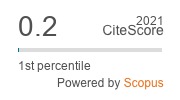A Review: Some Application on Fuzzy Logic
DOI:
https://doi.org/10.17762/msea.v71i4.2410Abstract
The idea of relative graded membership, which draws inspiration from human sight and reasoning, forms the foundation of fuzzy logic theory. In 1965, Lotfi A. Zadeh released the first version of his groundbreaking study on fuzzy sets. When it comes to information from computational awareness and cognition, fuzzy logic can handle data that is ambiguous, imprecise, hazy, partly true, or lacking in clear limits. Fuzzy logic permits the incorporation of hazy human judgements in computational issues. Additionally, it offers a useful way to resolve disputes involving several factors and improve choice evaluation. Fuzzy logic-based new computing techniques can be used to create clever decision-making, identification, pattern-recognition, optimization, and management systems. Engineers (electrical, mechanical, civil, chemical, aerospace, agricultural, biomedical, computer, environmental, geological, industrial, and mechatronics), mathematicians, computer software developers and researchers, natural scientists (biology, chemistry, earth science, and physics), medical researchers, and social scientists (economics, management, political science, and psychoanalysis) all find fuzzy logic to be of great use in research and development. In fact, many technical and scientific works use fuzzy logic, which was once considered to be a mysterious mathematical curiosity.




